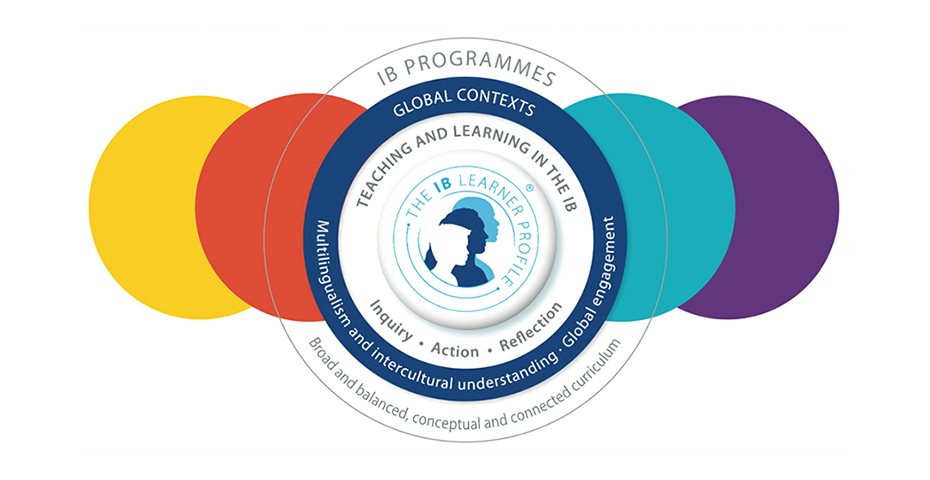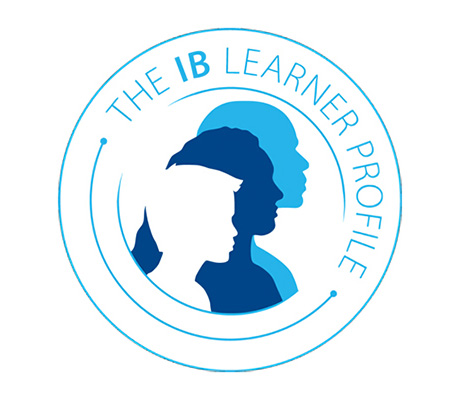What is The International Baccalaureate Organization (IB)?
What is The International Baccalaureate Organization (IB)?

About the IB
The IB offers international educational programmes provided by the International Baccalaureate Organization (headquartered in Geneva).
The IB was founded in 1968 as a challenging, comprehensive educational programme aiming to develop students who understand and cope with the complexity of the world and help them acquire the attitude and skills needed to conduct themselves responsible for the future, as well as to secure a pathway to university admission for students by providing them with the internationally accepted university entrance qualification (International Baccalaureate degree). Currently, the IB creates a common curriculum for accredited schools and conducts worldwide International Baccalaureate examinations and awards International Baccalaureate qualifications.
The IB mission
The IB mission statement, as you can read below, clarifies the overall purpose of promoting and developing international education programmes.
The IB aims to develop inquiring, knowledgeable and caring young people who help to create a better and more peaceful world through intercultural understanding and respect.
To this end the organization works with schools, governments and international organizations to develop challenging programmes of international education and rigorous assessment. These programmes encourage students across the world to become active, compassionate and lifelong learners who understand that other people, with their differences, can also be right.
As such, the IB programmes place the attempt to define the international perspective in clearer terms and the efforts to move closer to its ideal through practice as the core mission of IB World Schools.
About the IB Programmes
Providing the following educational programmes according to the age of students in order to develop human resources with the skills to cope with globalization:
-
Primary Years Programme (PYP) / ages 3 to 12
Focusing on mental and physical development. Available in any language.
-
Middle Years Programme (MYP) / ages 11 to 16
Helping young people learn about the connections between their studies in the past and society. Available in any language.
-
Diploma Programme (DP) / ages 16 to 19
Helping students obtain an internationally recognized university-entrance qualification (the IB Diploma) when they complete the prescribed curriculum for two years and achieve certain grades after passing the final examination. In principle, conducted in English, French, or Spanish, with some subjects offered in Japanese (Dual Language Diploma Programme: DLDP).
-
Career-related Programme (IBCP) / ages 16 to 19
Related to career and vocational education, which emphasizes the acquisition of skills useful for lifelong career development. Some of the subjects are conducted in English, French, or Spanish.
*There are no schools yet that have introduced this programme in Japan. (For detailed information, please refer to the website of the IB.)
The IB Learner Profile
The IB Learner Profile embodies the IB mission and plays the core role for IB’s answers to the question, “What does it mean to have an international perspective?” Specifically, the attributes valued by IB World Schools are represented as the following 10 learner profiles. (Please refer to the following link for specific details of each learner profile.)
School’s specific context
Inquirers
Knowledgeable
Thinkers
Communicators
Principled
Open-minded
Caring
Risk-takers
Balanced
Reflective
Click here for specific details of each learner profile.
The IB Learner Profile

IB’s Learning Criteria and the Framework of Implementation

The standards and practices of IB programmes are divided into four main categories: purpose, environment, culture, and learning. These four categories are incorporated within a framework wherein learning is centered and surrounded by the IB philosophy and the school’s specific context.
This way of thinking provides a perspective on how schools will be designed, developed, and evolved. The framework for this way of thinking is premised on the concept that each element of these four categories works to complement each other when the IB philosophy is embodied in the context of each school that implements the IB programmes. One element must develop while always having relations with other elements. Such a way of thinking and perspective will help schools when they explain to third parties about both the successes and challenges they face during the development of the IB programmes.
This way of thinking has a wide range of implications. It represents that all of the following, which are expected in the IB World School community, will become connected around the learning experience:
- The IB philosophy is well integrated into each school’s specific context.
- Purposes consistent with the IB mission are established as a steady and clear direction for IB education and shared among members.
- The learning environment has effective mechanisms and is developed with the support of organizational practices and resources.
- A dynamic school culture is fostered, centered on the whole-person and inclusive learning community.
- The IB World School community has a positive impact in the context of the local society, country, and international society.
- The IB World School community seeks to create the highest quality learning experience possible for students.
Communities of these schools create the high-quality education that will make a better world together with the IB.
If you would like to deepen your understanding of the International Baccalaureate, please read the official guidebook here: “What is an International Baccalaureate (IB) education?”
